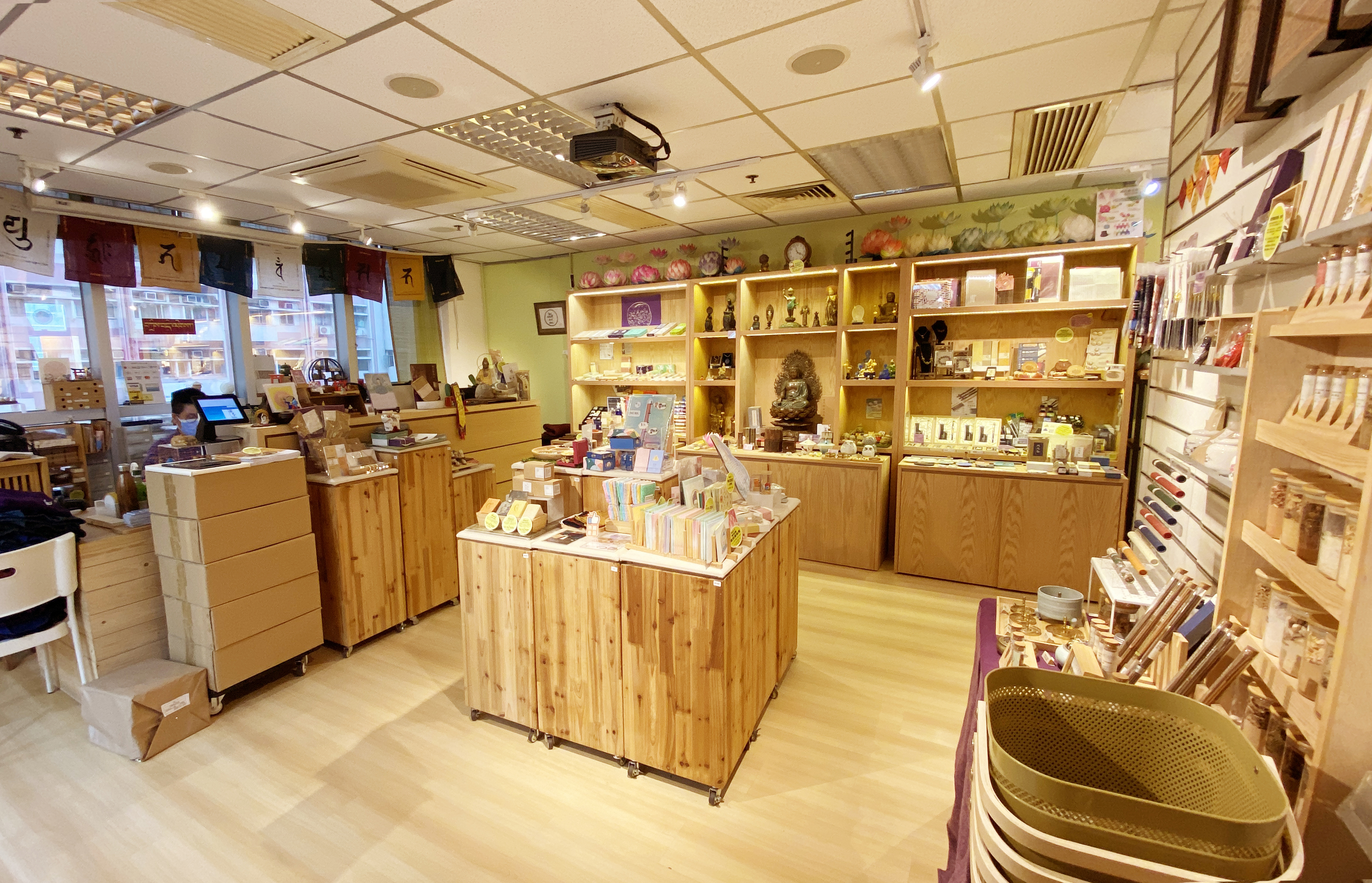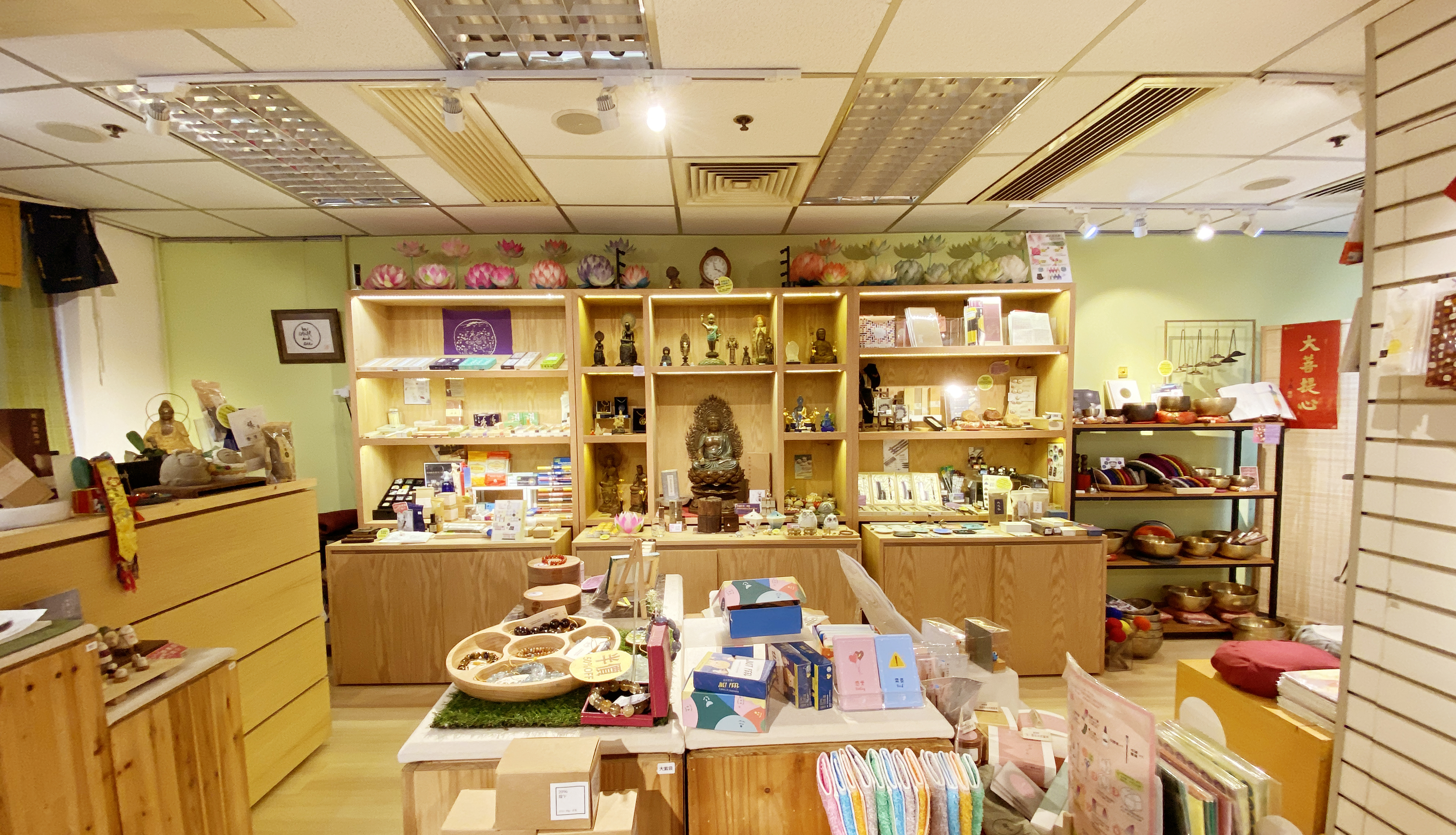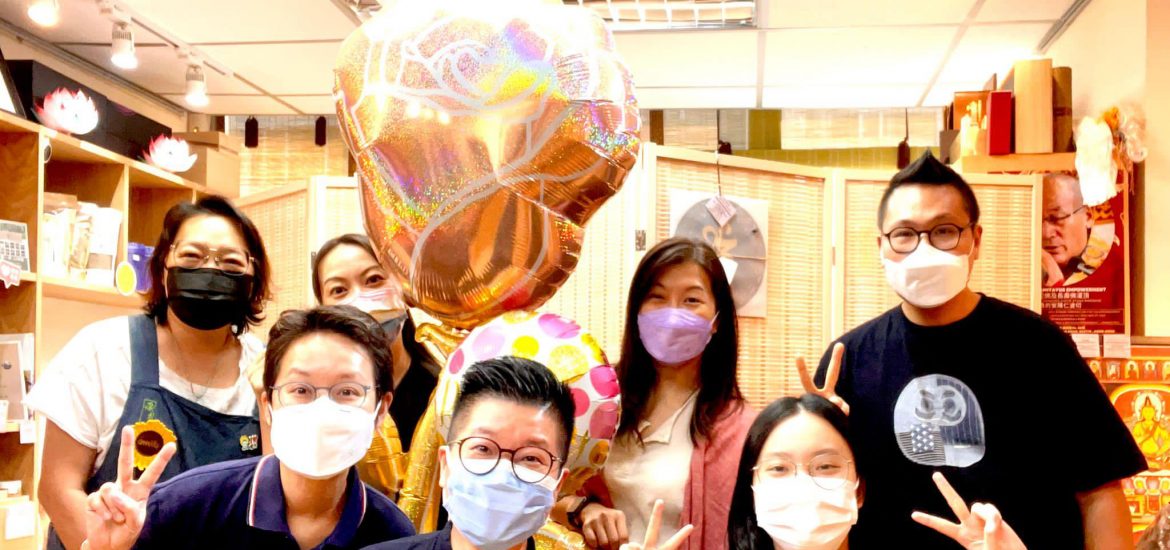All images courtesy of Cynthia Hui
It has been a surprisingly long time (eight years) since my last interview with Cynthia Hui, owner of one of Hong Kong’s more prominently Buddhist vendors. The Han Li is a classic example of a true Buddhist business; not just a firm managed by a Buddhist person or family, but also one that specifically deals in Buddhist products like prayer beads, incense and incense burners, apparel and paraphernalia, drinks and vegetarian food, and handicrafts. Our initial interview was in 2014, having occurred shortly after the Han Li had been established in 2011: the business only celebrated its first decade last year.
“We have learned so much since then, especially after the pandemic,” she told me. “Yet challenges have brought more opportunities: we have developed our website and grown our internet sales, and even delivered sutra-copying products to people enduring boring hotel stays back when it was the 21-day quarantine.” The online shop, out of necessity amidst the pandemic but also thanks to her cultivation of trusted connections, has gone global, one example being the Japanese partners isumu, who make Buddhist statues as art objects.
The Han Li had been founded between Cynthia, her brother Arnold (who still manages the firm’s LinkedIn page), and their mother. When Cynthia offered to take time off of managing the business to take care of their mother, who had to stay home more often due to long-term illness, the latter asked her daughter to embrace the calling of the firm as a collaborative family project. This was not simply a shop. It was something special they had done together.
To this end, Cynthia expanded her team, hiring several employees to take on additional tasks, from accounting to sales. “Each individual will always have shortcomings, but not only do we have a nice working environment, but we believe in our team being stronger than the individual. I also believe in adaptive management, and I think our team appreciates that.”

In the midst of the pandemic, Cynthia also rented out an additional floor space in the same building of the Han Li. Originally envisaged as a storage space for various Buddhist organizations, this became Dana House, a mindfulness co-sharing space that could actually host diverse events, staying true to the Han Li’s non-sectarian instincts. Cynthia has also launched a charity fund, the Han Li Charity Foundation. This lineage-free organization is funded project by project. Its initiatives center on introducing people to various Buddhist centers, and hosts classes and seminars.
“We take our non-sectarianism very seriously, having helped to sell Buddhist tools and instruments of different traditions. We also balance our openness with a kind but sober approach toward more superstitious attitudes toward our products.” Cynthia noted that patrons might be older and from a different time, believing in what younger generations might have less patience for: such as the accidental snapping of incense sticks, which could be seen as inauspicious. “We use compassionate means to help the superstitious-minded acquire Buddhist paraphernalia in the right spirit.”

Through Dana House, the Han Li Charity Foundation, and the Han Li itself, Cynthia believes that the products and services offered from trusted friends come together to become a hub of Theravada, Mahayana, and Vajrayana procurement and services. Things have come a long way since the initial (what Cynthia calls a very “brave”) launch in 2011, when her family opened the Han Li with a tiny inventory of products. However, from the outset, she also had assessed the Buddhist market carefully, observing Christian counterparts (vendors that have shops in churches or Christian centers) and developing a “scripturally informed catalogue” that can be offered for daily use. Furthermore, constantly listening to customer feedback, relying on patrons’ loyalty, and always keeping in mind the average person’s enjoyment of Buddhist-themed items remains at the forefront of her success and the Han Li’s nimble adaptation to changes in Hong Kong.
“The reality is that Hong Kong society, or perhaps our local culture, still harbors a lingering repulsion to Buddhism due to negative associations and stereotypes. In a sense, I’m interested in how we can package things better, figuratively and literally,” said Cynthia. It is why, I believe telling the story of the Han Li is so important, for it is one of Hong Kong’s hallmark stories of Buddhist business. “The trick is finding the right balance as a businessperson. I hope to adhere to and respect Buddhist sensibilities around traditionalism, while projecting an aura of cosmopolitanism that appeals to the educated and globally minded.”
The consistent theme whenever Cynthia shares her perspective is how time, shifting needs, and the changing market will prompt adjustments in her own approach to being a Buddhist businessperson. “We believe in our items as being so-called practice companions, that they serve a meaningful use for your own path,” said Cynthia. In a very solid sense, as she faces inventory numbers, records her business expenses, and counts her sales at the end of each day, the Han Li and its offshoots have become her own practice.
See more
Related features from BDG
The Han Li: Zen Art for the Heart


